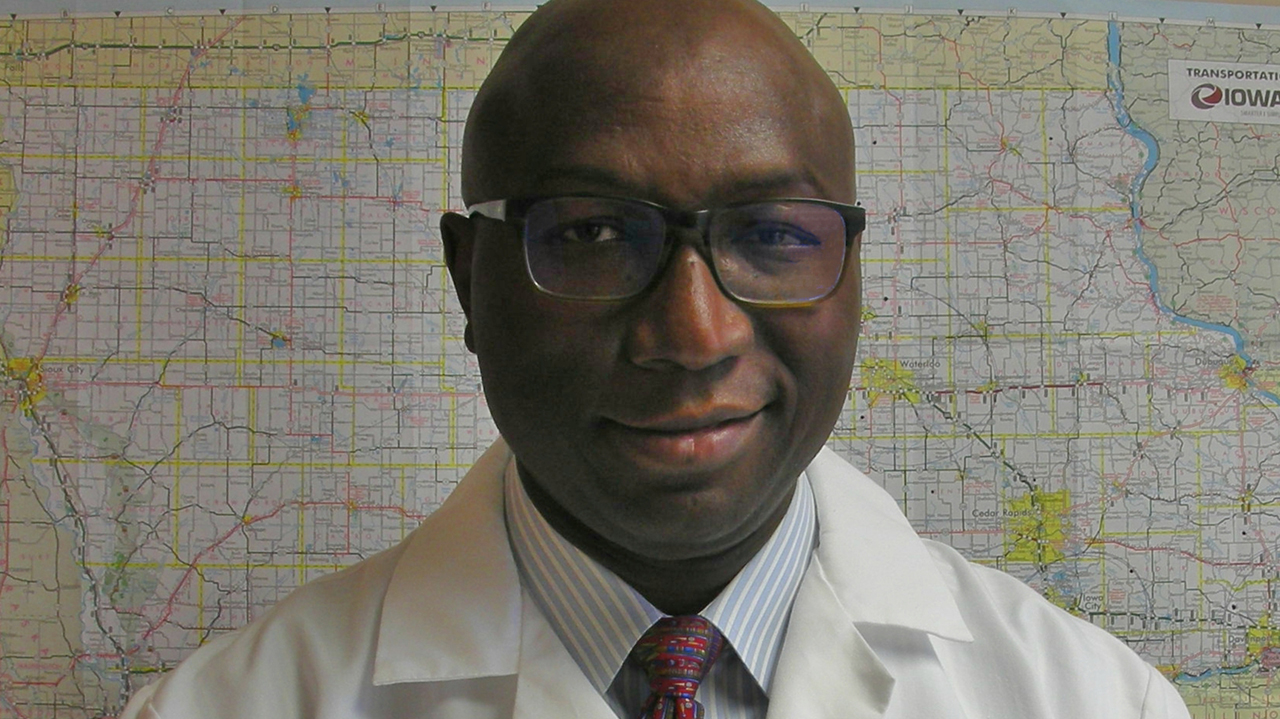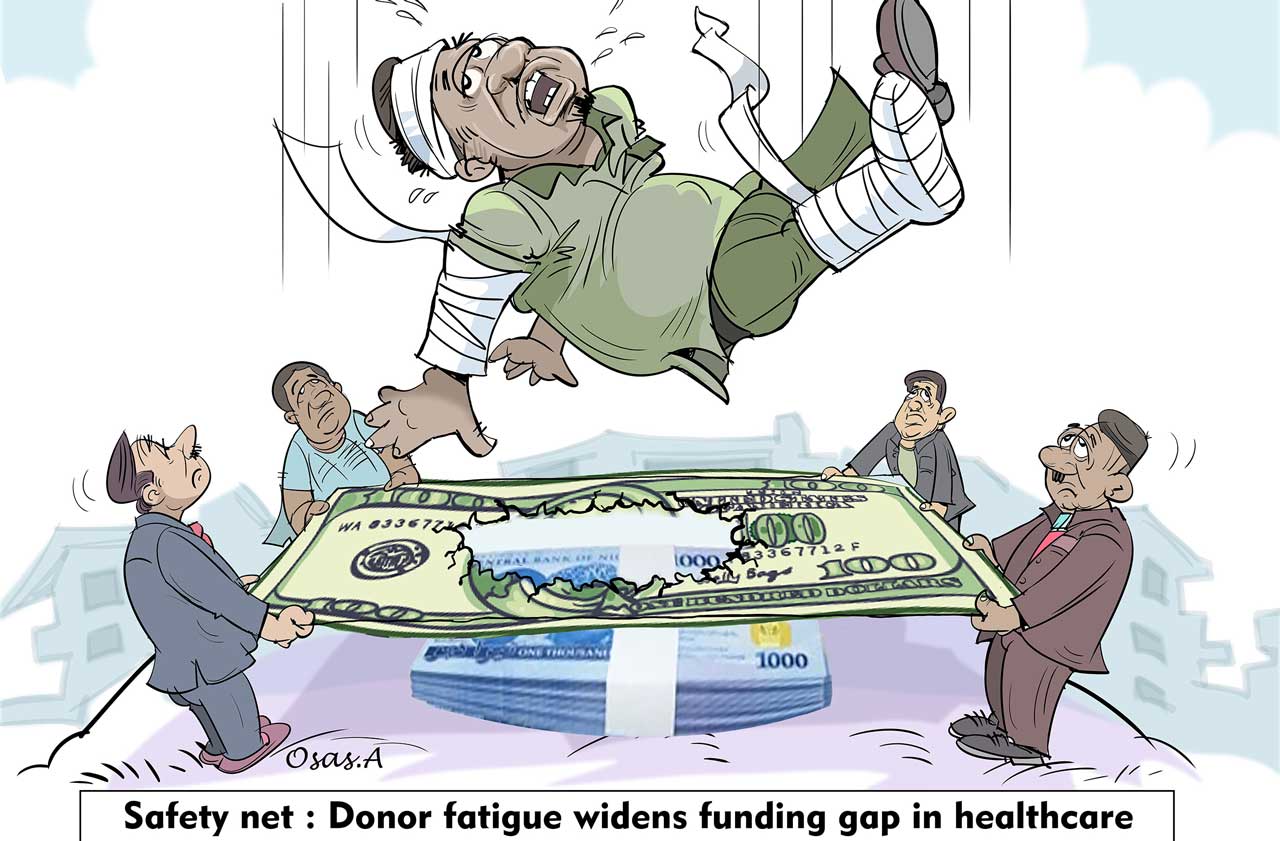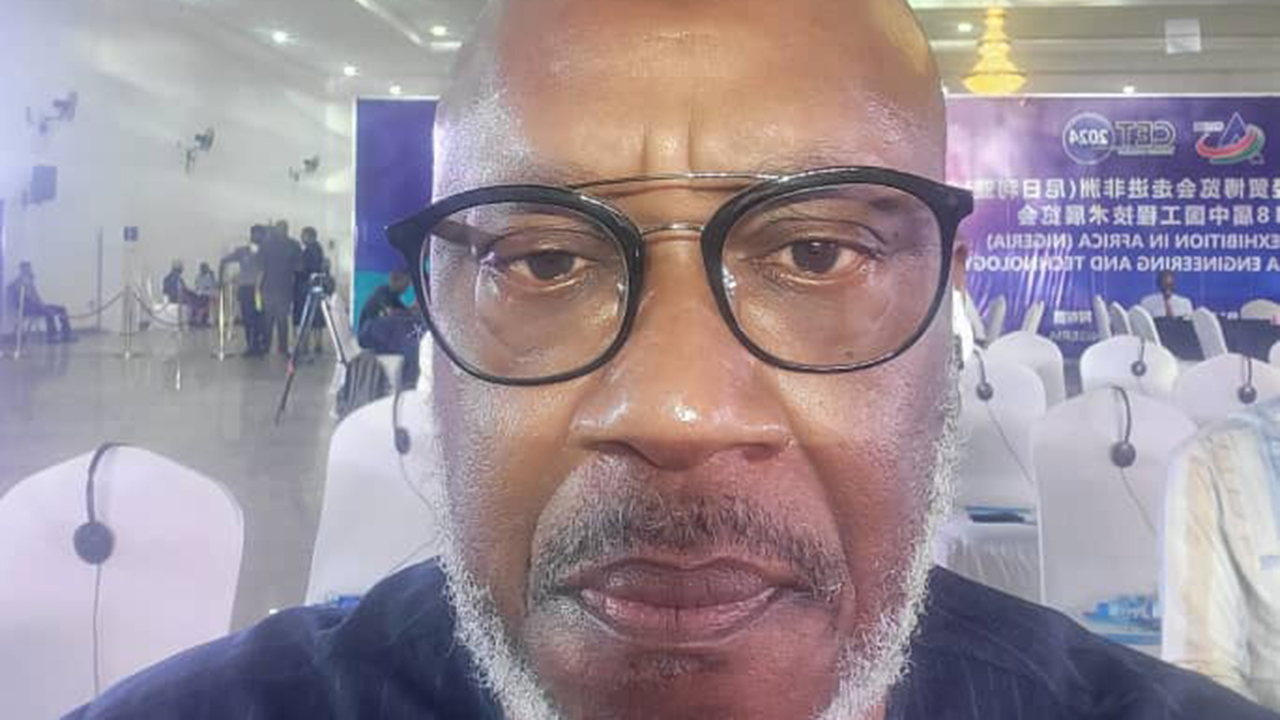
Born in Ibadan, Oyo State, brought up in Lagos State and in his hometown, Umuezeala-Ehime, Ehime, in Ehime-Mbano local council of Imo State, where he lived with his grandparents after his secondary education, Dr. Matthew Obinna Nwaneri is not bashful of change.
Very early in life, he learnt to work hard and expect to face new challenges. His commitment to these two key principles of life has today earned him a place in the league of leading oncologists in the world, to the pride of many Nigerians.
In November last year, he assumed the presidency of the Iowa Oncology Society, an organisation of medical oncologists and allied health professionals with focus on cancer care in the State of Iowa, United States (U.S.). The position places the 1989 graduate of the University of Nigeria, Enugu Campus (UNEC), at the forefront of efforts to improve cancer care for patients in the state.
Also recently, Nwaneri moved to Sioux City, Iowa, as the Iowa Oncology Network Director, after five years at the University of Iowa Health Care, to provide better leadership and continuity of care for cancer patients in rural northwestern Iowa, northeastern Nebraska and southeastern South Dakota.
He is currently the Medical Director of one of the best cancer centres in the U.S., the June E. Nylen Cancer Centre (JENCC) in Iowa City, where he helps cancer patients and their families to understand the illness and explore world-class treatment options.
“I have over 20 years of experience in providing compassionate, value-based cancer care to rural Iowa residents. This helps me relate to all patients faced with a cancer diagnosis. I talk to patients and their families in a way to help them understand their illness, explore world-class treatment options and make viable value-based choices.
“In all this, we continue to have hope and a plan for their care at such a trying time for all concerned,” he told The Guardian.
An alumnus of the Federal Government College, Ijanikin, Lagos, Nwaneri said the highly competitive and academically challenging environment at the school, coupled with the culture of academic rigour at UNEC and the University of Nigeria Teaching Hospital (UNTH), Enugu, where he did his pre-registration one-year internship, prepared him for his current roles. “These early experiences in Nigeria have helped propel me to where I am today,” he emphasised.
Nwaneri said he chose to become a physician because it is a constantly changing and very challenging, but fulfilling profession, adding that the challenge and need for research inspired him to specialise in oncology.
“Additionally, there is a lot that we did not yet understand. I did a Hematology/Medical Oncology/Molecular Biology Fellowship at the University of Iowa Health Care from July 1998 to June 2001,” he noted.
He stated that seeing improved outcomes and extended survival over the past 32 years has convinced him that practising in Oncology was the best choice for him, adding that he has no doubt that clinical trials, with support of innovative new therapies, would continue to yield great results for cancer patients.
His work has focused on breast cancer care, female gynecological cancers (cervical and ovarian), lung cancer and improving cancer care access for rural Iowans and underserved populations, especially rural Oncology practices, with extensive experience in carcinomas of unknown primary site.
Board certified in medical oncology and board eligible in internal medicine and hematology by the American Board of Internal Medicine, Nwaneri completed his Internal Medicine Residency at Abbott Northwestern Hospital, University of Minnesota, Minneapolis, and his fellowship in Hematology, Oncology and Bone and Marrow Transplantation at the University of Iowa Hospitals and Clinics in Iowa City, Iowa.
He also received an Executive Master of Business Administration from the Tippie College of Business at the University of Iowa and is also an active member of the American Society of Clinical Oncology, American Society of Hematology, American Medical Association and American Association for Cancer Research.
Before leaving Nigeria in June 1993 to further his medical education and training, Nwaneri had practised in the country, as a medical officer in Aboh-Mbaise, Imo State, for a few months, and later as a corps member in Maiduguri, Borno State, which he described as “one of the best experiences in my young adult life as a doctor.”
He added: “During my National Youth Service Corps (NYSC) year, (1991-1992), I headed the NYSC Camp Clinic for two separate batches, worked at the University of Maiduguri Teaching Hospital (UMTH) Emergency Department and did my community development service in rural Borno State.
“I learnt to speak Hausa and some Kanuri languages in addition to being very fluent in Yoruba and Igbo. I left Nigeria in June 1993, but with continued involvement in Nigerian health issues.”
So, despite making waves in the U.S., Nwaneri still keeps his Medical and Dental Council of Nigeria (MDCN) licence current. And as part of giving back to the country, he continues periodic volunteer efforts in Nigeria to improve cancer care education and access to quality Oncology training for caregivers.
To this end, he works with Project Pink Blue in Nigeria, a cancer organisation engaged in cancer awareness, free cancer screenings, support to people battling with cancer, patient navigation, advocacy, fundraising for cancer patients, cancer research, oncology training and psychological support.
His involvement in Nigerian health issues also culminated in his returning to Nigeria in August 2014, in the middle of the Ebola epidemic.
“I came back and started a cancer programme/clinic at the St. Nicholas Hospital, Lagos, from October 2014 till March 2016. I understand the health challenges, especially cancer care in Nigeria. I visited the centre periodically until 2019 and could not be there last year due to the COVID-19 pandemic,” he explained.
Asked what could be done to ensure that more cancer patients in the country get adequate care and at considerate cost, Nwaneri, while acknowledging that cancer care is expensive globally, said: “The only viable way to reduce the impact of the cost of health care in general and cancer care in particular is for people to have universal health insurance into which everyone pays.
“Otherwise, we will all pay cash, and that is not sustainable anywhere in the world. Cancer care is not cheaper in the United Kingdom (UK), U.S., India, South Africa or Egypt. If people spent even half the money they spend on foreign health care trips at the numerous high quality and world-class centres in Nigeria, our health care will improve.”
To discourage brain drain in the medical sector, Nwaneri stressed the need for widespread availability of health insurance, noting that this can be achieved by expanding the National Health Insurance Scheme (NHIS).
“The persons (Nigerian political leadership) who authorise the funds for public health facilities should use those same facilities, all the time. This may lead to proper/better funding of public health facilities, with top-of-the-line equipment and highly trained and well-paid medical expertise.
“This may discourage young health professionals (nurses and doctors) from going abroad to improve their medical training and knowledge. Many never come back to Nigeria, like I did for about two years from 2014 to 2016.”
On his new role as managing director of JENCC, he said: “I am excited to be part of a very progressive, forward-thinking medical leadership in the Siouxland community and at the JENCC.
“Health care leaders have come together to build an excellent cancer programme that is supported by Mercy One and Unity Point Health. This is an ideal and at the same time, a unique relationship that I am looking forward to be a part of and learning from.”
Nwaneri, who is married to a pharmacist and have a teenage son, enjoys traveling locally and internationally, visiting museums and historical sites, and reading non-fiction and socio-economic literature. He is also a road bike-rider.






